Guest security, operational effectiveness, and seamless experiences are imperative in the hospitality industry today in the highly competitive business. Hotel RFID lock solutions have rapidly taken the place of magnetic stripe cards and the antiquated keys as the new solution for contemporary hotels. The intelligent electronic locks utilize radio frequency identification (RFID) technology for secure, convenient, and scalable access control. Here is a comprehensive introduction to how hotel RFID lock systems work, their major features, security, and choosing and maintaining them for long-term sustainability.
1. What is a Hotel RFID Lock System?
A hotel RFID lock system involves a mixture of door hardware, RFID readers, and encoded credentials—such as key cards, fobs, or mobile phones—to offer guest room and facility access to a hotel. In contrast with magnetic stripe locks, an RFID system does not require swiping. The lock scans the chip inside the credential when it is taken to close proximity of the reader.
One of the benefits of Hotel RFID lock systems is the added security. As each card’s information is encrypted, duplication of a key is virtually impossible, and unauthorized access to the room is out of the question. Guests like it better, too—no swiping or fiddling with a standard key; they just wave their card or phone in front of the reader and the door opens immediately. For the hotel employees, of course, things are much simpler as well, since a misplaced key can be rendered useless in an instant, eliminating wasted time and eliminating hassle and cost of rekeying locks.
2. How Hotel RFID Lock Systems Work?
Although the technology involved with a Hotel RFID lock system is complex, the procedure is simple for the guest. Once a room has been reserved, staff members use a front-desk terminal or self-service kiosk to input the guest’s room number and stay dates into an RFID card or mobile credential.
When the guest cards or phones by the door, the reader on the lock broadcasts a 13.56 MHz high frequency, which is the standard frequency to operate most often within hotels. The credential and the lock exchange encrypted information quickly, and the system checks to ensure everything is what it is stored as in the hotel’s management system.
If the credentials are real, the motor in the lock clicks loose and the guest can go in—no swiping or key-turning. High-frequency RFID makes this process almost instant while supporting advanced encryption such as AES or 3DES, giving both guests and hotel operators a secure and seamless experience.
The process is straightforward but highly secure:
Credential Encoding-Signal Exchange-Authentication-Unlocking
Compared with low-frequency RFID, high-frequency (HF) technology enables faster communication and supports advanced encryption standards such as AES or 3DES.
3. Types of Hotel RFID Lock Systems
Selecting the right Hotel RFID lock system is more than choosing a door handle. Each category offers different levels of connectivity, security, and guest convenience. Below are the main types, plus important variations within each.
1) Standalone RFID Locks
These self-contained locks are programmed directly at each door or with a portable encoder.
Key Traits
- No Network Wiring: Ideal for small hostels, boutique hotels, or smaller hotels with little IT infrastructure.
- Low Upfront Cost: No routers or controllers, so minimal up-front cost.
- Card-Based Updates: Staff must reprogram locks with a handheld device to change access rights or audit logs.
- Use Case: Properties with fewer than 50 rooms or seasonal resorts where real-time monitoring is not critical.
2) Semi-Online (Wireless Update) Systems
A hybrid between standalone and fully online setups.
- Periodic Syncing: Locks remain offline most of the time but can sync to a central server when a staff member’s encoder card or portable terminal is presented.
- Battery Friendly: Because the lock isn’t constantly connected, batteries last longer than in fully online systems.
- Limited Real-Time Control: Good balance of cost and convenience for mid-sized hotels.
3) Fully Online / Networked Systems
Locks communicate with one another all the time—using Wi-Fi, Zigbee, or custom mesh—to a master controller.
Advantages
- Real-Time Control: On-the-fly revocation of keys, real-time adjustment of access, and real-time audit trails.
- Remote Monitoring: Get low-battery, door-aajar state, or intruder try in real-time.
- Integration Ready: Best suited for hotels that need tight integration with PMS, self-service kiosks, and energy management.
- Considerations: Higher initial expense, network planning with restraint, and robust cybersecurity practices.
4) Mobile Key–Enabled Systems
- They leverage the application of Bluetooth Low Energy (BLE) or Near Field Communication (NFC) to allow smartphones or wearables to act as keys.
- Guest Convenience: The guest is given an e-key in the hotel app or printed on Apple/Google Wallet, avoiding a trip to the front desk.
- Multiple Credential Options: Co-exist alongside physical cards as a fall-back.
- Upsell Potential: In-app offers or room upgrades prompt when guests are accessing the mobile app.
5) Cloud-Managed or IoT-Integrated Platforms
- A next-generation category where system software is cloud-hosted.
- Centralized Administration: Best for hotel groups with two or more properties.
- Predictive Maintenance: Cloud analytics forecast battery replacements and usage habits.
- OTA Updates: Locks are updated with firmware securely over-the-air.
6) Specialty & Niche Variants
- Locker and Cabinet RFID Locks: For gyms, spas, and staff lockers.
- Elevator & Parking Gate Readers: Extend the same credential to vertical transportation and parking control.
- Mixed-Use Developments: Combine hotel guest access with residential or co-working spaces on the same credential platform.
| Type | Connectivity | Best Fit | Typical Cost per Door* |
|---|---|---|---|
| Standalone | None | Small hotels, hostels | Low |
| Semi-Online | Periodic | Mid-sized properties | Medium |
| Fully Online | Continuous | Large hotels, resorts | High |
| Mobile Key–Enabled | BLE/NFC | Tech-forward brands | Medium–High |
| Cloud-Managed IoT | Cloud + BLE | Multi-property chains | High |
Understanding these kinds—and hybrids thereof—helps hoteliers match security need, budget, and guest-experience goals. From a boutique hotel needing simplicity to an international hotel chain needing real-time data, there exists a Hotel RFID lock system for each scenario.
4. Key Components and Features of Hotel RFID Lock Systems
Door Hardware: Mortise or cylindrical lock with integrated RFID reader, motorized latch, and emergency mechanical key override.
Control Board & Battery Pack: Powers lock and manages encrypted comms.
Property Management Integration: Credentials are encrypted by software, manages guest check-in/out, and stores audit logs.
Peripheral Access: Authentication credentials can be used to control elevators, parking gates, gyms, or back-of-house.
Additional features including privacy indicators, real-time door status reports, and power-saving modes to reduce battery usage.
5. Security Considerations for Hotel RFID Lock Systems
Security is central to all Hotel RFID lock systems, and potential risks must be known. Cards can be duplicated, credentials can be misplaced, and old firmware can leave openings if not promptly addressed.
To stay one step ahead of those dangers, start with extremely secure credentials. Cards embedded with MIFARE DESFire EV2 or EV3 microchips have randomly generated keys and strong AES encryption, which makes them very much harder to copy. It’s also wise to have personal, detailed audit trails so you’ll have a record of every door opening—a handy tool if you ever need to trace an event.
Another is to implement automatic key expiration periods, such that a card stops working the moment a stay terminates. And don’t overlook regular firmware updates; these patches plug security vulnerabilities and update encryption processes.
Finally, perform a clearly defined incident-response process. From a lost key to a suspected breach, or recurring systems irregularity, having documented procedures in place enables your team to respond quickly and secure guest confidence.
6. Integrating Hotel RFID Lock Systems with Property Management Software
A major advantage of Hotel RFID lock systems is their ability to integrate with core hotel software:
PMS Connectivity: Automates check-in/check-out, room transfer, and late checkout without re-encoding cards.
Self-Check-In Kiosks: Issue keys or mobile credentials to guests arriving during unmanned hours.
Elevator and Facility Control: Limit access to specific floors or facilities.
Back-of-House Management: Track staff access to supply closets or housekeeping rooms for accountability.
An open API or software development kit (SDK) ensures the lock system can grow with future digital services.
7. Installation and Maintenance of Hotel RFID Lock System
Bringing a Hotel RFID lock system to life takes some planning and upkeep, but it doesn’t have to be challenging if you’re aware of what to expect. Following are some standard terms for your knowledge.
1. New Build Projects
If you’re outfitting a new property, the process starts early in the design phase. Preparation of the door, wiring routes, and network locations can be orchestrated by contractors and architects before construction, so that each room and common space is ready for the lock and reader. Coordination of scheduling with the lock distributor here avoids last-minute holdups and keeps the entire project on schedule.
2. Retrofit Installations
Upgrading an existing hotel can be just as unobtrusive with the right strategy. The majority of manufacturers provide retrofit kits that fit within the door cutouts already present and use the interior housings, so there is no need to replace entire doors or frames. This minimizes guest inconvenience and construction cost. A pilot installation in a small set of rooms is usually the best method for ensuring the fit and for training staff prior to system-wide installation.
3. Ongoing Maintenance
Routine maintenance is a guarantee that the system is secure and reliable. Batteries in every lock are replaced by hotels 18 to 24 months, or earlier if low-power alerts appear on the software dashboard. It is also advisable to include small activities like cleaning reader surfaces and checking loose fittings in your engineering or housekeeping checklists. No less important, execute routine software firmware updates and security scans so the system is still protected from new threats.
By installing installation as a well-planned job and maintenance as a routine, your Hotel RFID lock system will give trouble-free, secure service for years to come.
8. Hotel RFID Lock Systems Cost Analysis and ROI
Overall investment depends on property size, hardware chosen, and integration complexity. Average prices are:
- Hardware: $250-$400 per lock (RFID reader and mechanism included).
- Software Licensing: Management software or cloud services yearly fees.
- Credentials: RFID cards or wristbands, $1–$3 per unit typically.
- Installation & Training: Labor and employee training costs.
While upfront costs may seem high, hotels benefit from rekeying savings, reduced lost-key incidents, and improved operational efficiency—reaching a positive total cost of ownership (TCO) in five to seven years.
9. How to Select the Top Hotel RFID Lock Systems for Your Facility?
Selecting the best Hotel RFID lock system begins with determining what is most critical to your hotel and your visitors. Security is top priority, so be certain to select locks that comply with recognized standards like ISO/IEC 14443, ANSI/BHMA Grade 1, and UL 294. These marks indicate that the hardware has been vigorously tested for reliability and data integrity.
Compatibility is also critical. Your new locks have to integrate seamlessly with the property management system (PMS) you already have, and additionally with any POS terminals or self-check-in kiosks you’re planning to install. This gives you an easy check-in and check-out.
Practicality is also important. Choose models with longer battery life and visible low-power signals so that staff can replace them before they cause a problem. If you want to offer mobile keys—a feature now commonly demanded by guests—ensure that the system accommodates Bluetooth Low Energy (BLE) and digital purses like Apple or Google Wallet.
Finally, look at the vendor’s support and service. Look at their warranty conditions, service-level agreements, and local installation partners. Reputable companies such as ASSA ABLOY/VingCard, dormakaba, and SALTO possess great credentials and provide confident worldwide support and are therefore great options for any size hotel.
10. Future Trends in Hotel RFID Lock Systems Technology
The move toward an all-contactless guest experience is shaping the way that hotels decide on their next investment. Several advancements are especially fascinating to track.
Mobile-first entry is becoming increasingly the norm first, as more and more guests would like to use their smartphones or even smartwatches as room keys, and so systems that work well with Apple or Google Wallet will gain traction.
Utilizes cloud-based management. Instead of keeping servers on-site, hotels are shifting to web-based, centralized systems that enable staff members to track and maintain locks at multiple locations remotely.
Hotels are also exploring artificial intelligence and data analytics. By comparing lock usage, operators are able to predict when batteries need to be replaced, detect suspicious usage patterns, and even understand guest flow patterns to streamline staffing and energy usage.
Finally, sustainability is influencing product design. Low-power electronics, long-life batteries, and reusable signs allow hotels to reduce their impact and pursue green-building certification.
Remaining at the forefront of these trends will keep your hotel RFID lock system investment new and innovative.
11. Hotel RFID Lock Systems FAQs
Q1: What happens if a guest loses an RFID key card?
Staff can cancel the lost card in the system immediately and issue a replacement, bypassing rekeying the door.
Q2: Are mobile keys secure?
They are. Mobile credentials take advantage of top-level encryption and can require two-factor authentication through the guest’s phone.
Q3: How long do batteries last in locks?
Most hotel RFID locks last 18–24 months on standard AA batteries, depending on use and settings.
Q4: Are doors upgradable if installed?
Yes. Retrofit kits allow hotels to install RFID readers without replacing doors, saving cost and downtime.
12. Conclusion
Hotel RFID lock systems have transformed the guest access experience through the offer of security, efficiency, and convenience in one solution. If you’re a boutique hotel owner or an international chain hotelier, having a solid RFID lock system installed guarantees improved guest satisfaction and security for your investment. Hoteliers can make sound decisions by understanding system types, key components, security specifications, and integration options.

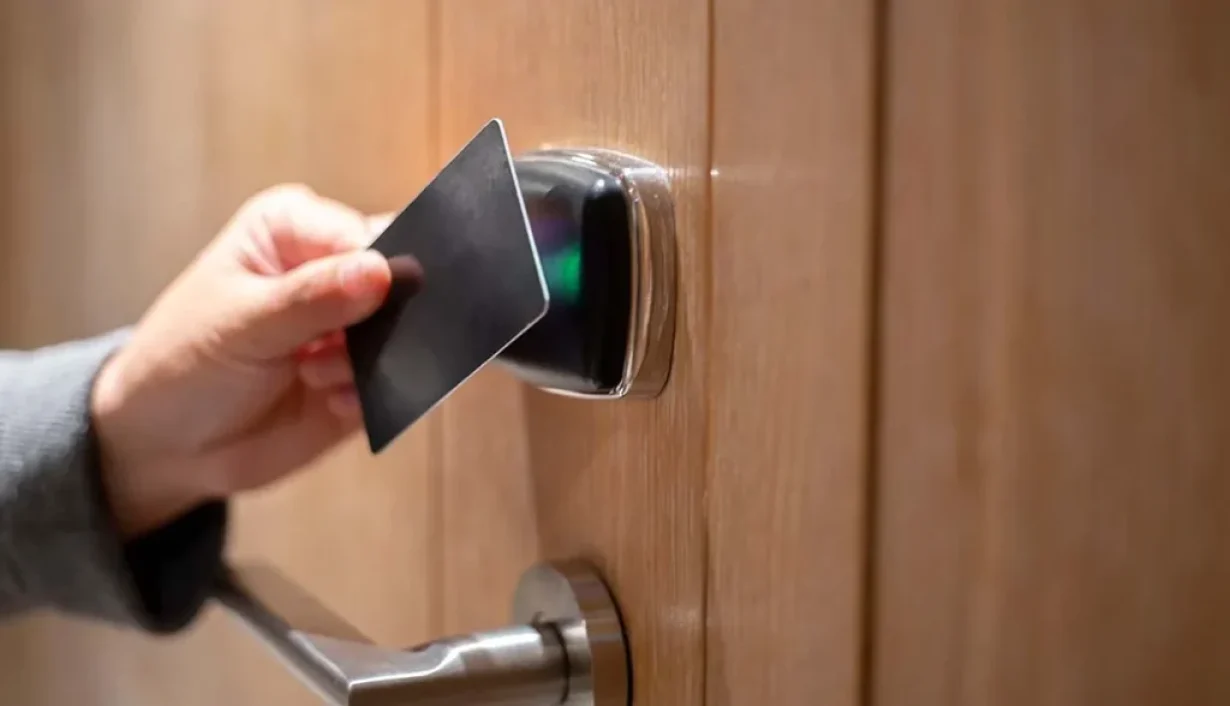
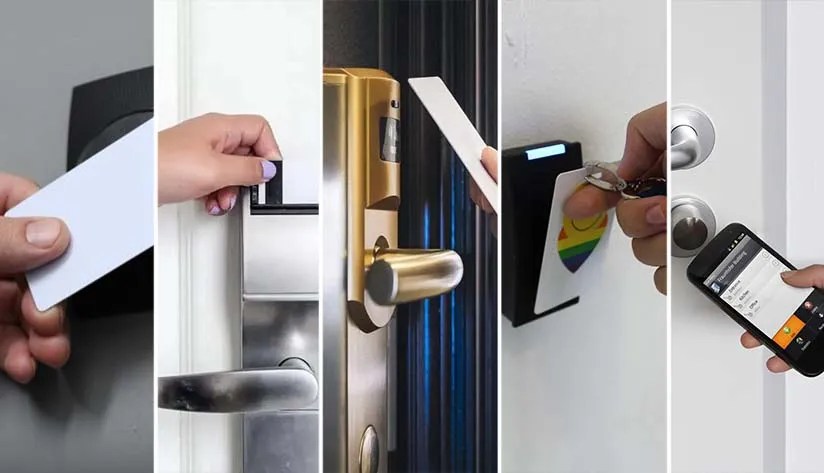
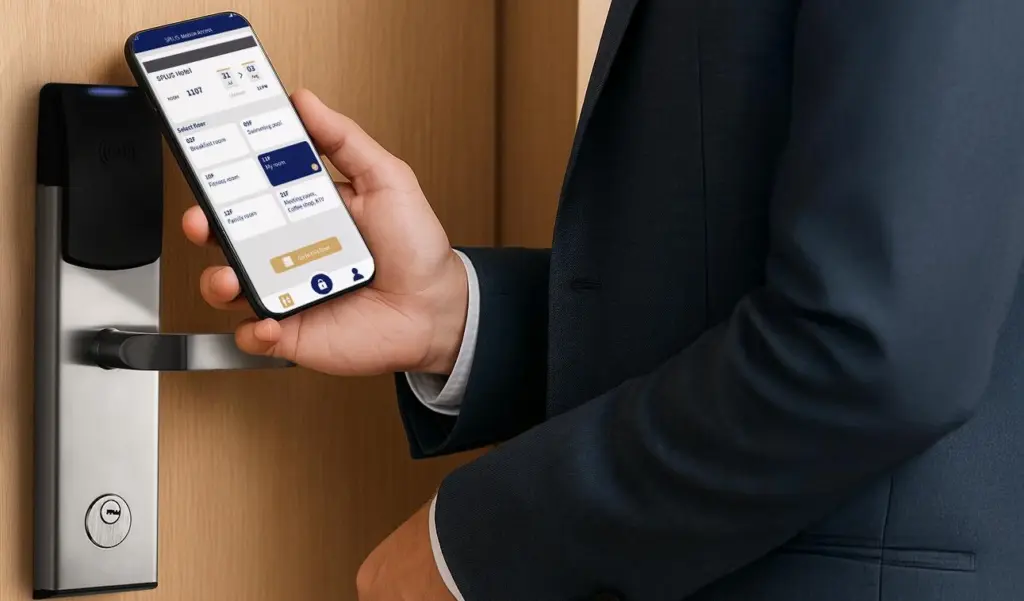
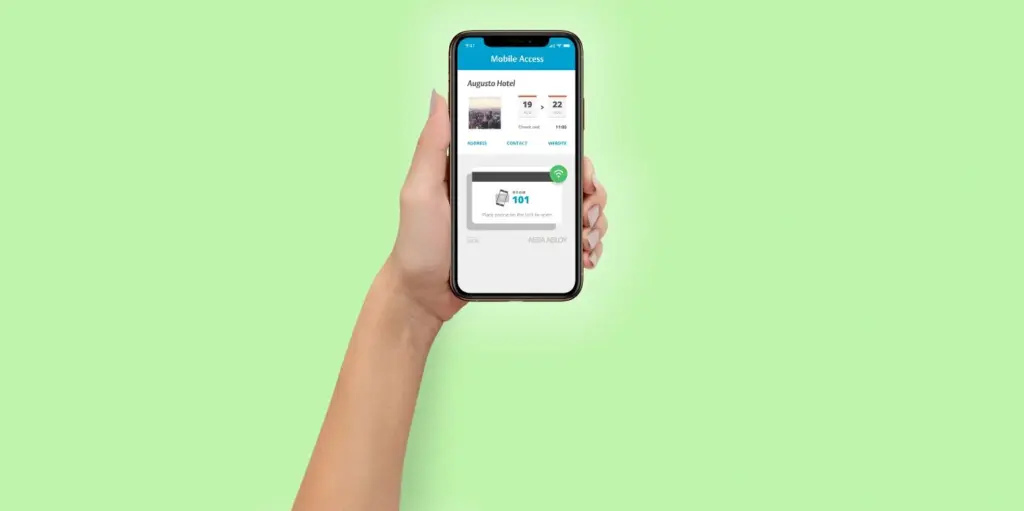
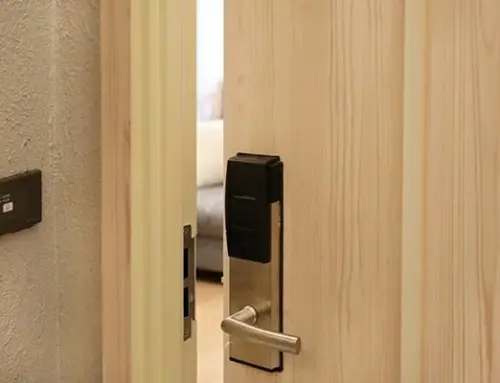
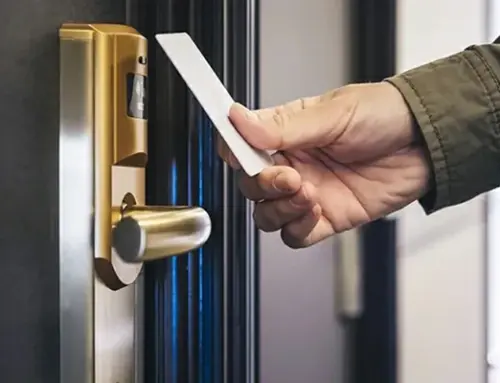
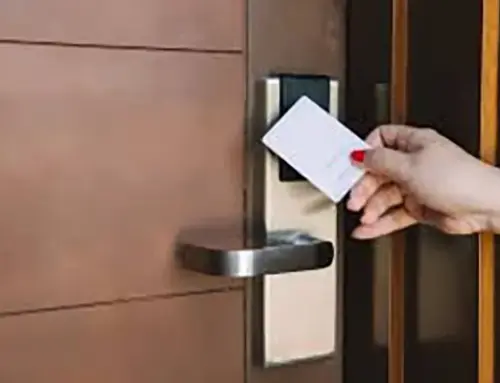
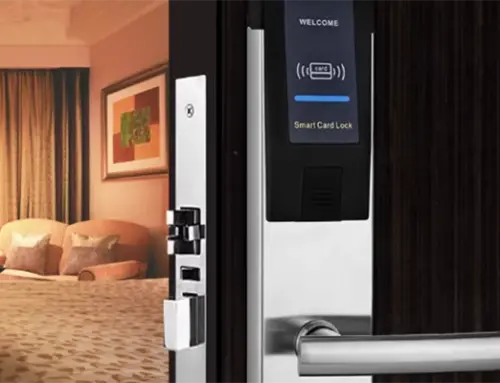
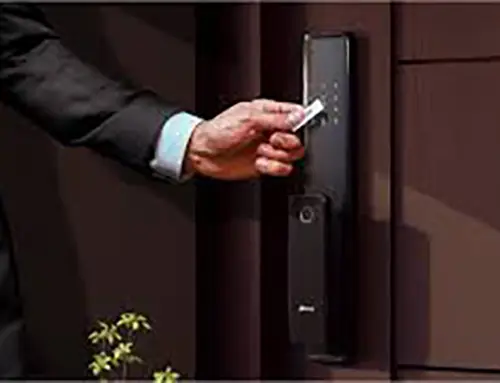
Leave A Comment